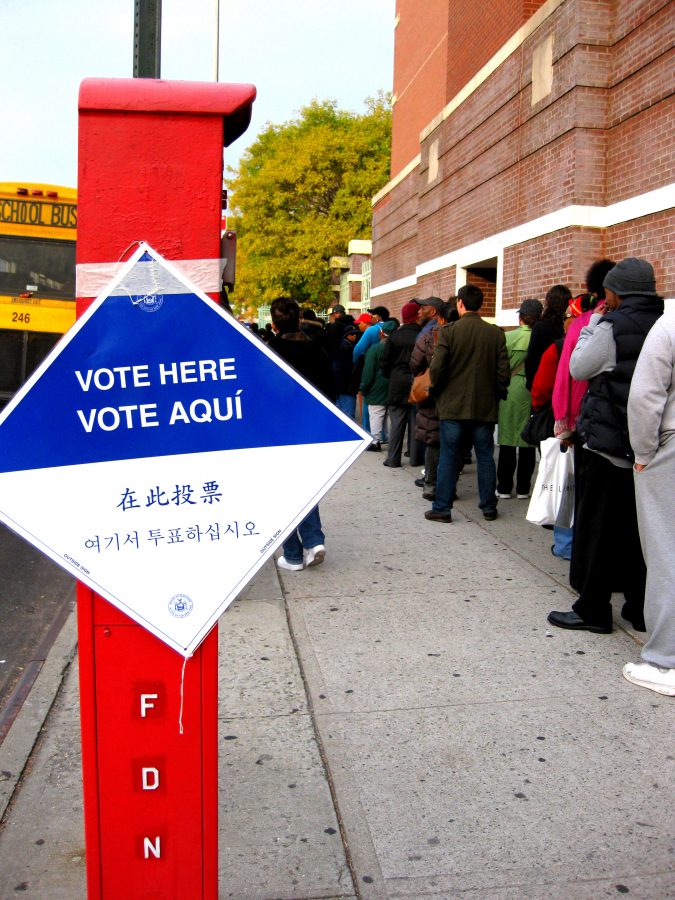In politics today, we are often distinctly aware of the need for neutrality. Those on both sides of the aisle frequently launch accusations of bias and the potential power of conflicts of interest is a frequent theme of political discussion. Our founders also clearly saw the importance of neutrality when they established an independent court system largely isolated from political pressure. Now, a new area of politics has become in increasing need of neutrality: the process of drawing districts.
It turns out that how you draw electoral districts, a process that occurs with the census once every 10 years, has profound importance for political power in the country. The wide use of the term “gerrymandering” reflects the fact that the misuse of this process has become a mainstay of our political experience. In gerrymandering, districts are drawn intentionally to benefit one party or another by packing all of your opponent’s supporters into one district and spreading out the opposition’s influence in other districts to gain more wins for your party. The strategy can have huge “payoffs,” allowing political actors to turn a temporary majority in state legislatures into a decade-long majority that cannot be easily challenged by citizen action. It also invariably creates situations where a party gets far more representation than what their percentage of the vote in the state would suggest. As a result, democracy gets hindered; people’s votes matter less as this process manages to decrease the value of citizen choice.
The ubiquity of gerrymandering should certainly lead us to question naive beliefs that the problem will work itself out. Nowadays, gerrymandering doesn’t even require grand scheming and unequal districting schemes are easier to concoct now than ever before. Gerrymandering seems to have a high payoff and low risk for the party drawing the lines, making it a fairly intractable problem for electoral representation. Further, due to the infrequent nature of district-drawing, one instance of gerrymandering can have profound consequences for years.
The most viable solution to the problems comes from this nation’s founders: just as courts were made independent and bodies of the government were separated to ensure balance, one of the most promising solutions to gerrymandering appears to be the efforts made to put the districting process out of political hands. These districting bodies, which take the form of independent commissions, can draw lines using objective mathematical models and still be made to obtain final approval from legislators. And, being independent, laws can require that only those not active in politics can be members of these commissions. This model has been tried in some states around the country, though these states remain comfortably in the minority.
The independent commission idea has shown some great promise. Though it is not fool-proof – under current laws the bodies of such commissions often still must be appointed by politicians – it would at least provide some kind of shield against gerrymandering. In fact, an examination of gerrymandering across the country confirms the efficacy of these commissions. Though one would expect the very one-party-dominated California to gerrymander, the state turned over its districting to a commission and now has the same concentration of legislators that would be expected by mathematical models. The success of California’s model has inspired other states as well.
Having the ability to improve our government is the best part about living in a democracy. Since our constitution provides us with the ability to amend laws and substantial leeway on how to implement certain policies or programs, citizens have the ability to try and refine our institutions to make them more responsive to our needs. The Supreme Court has ruled loud and clear that putting districting in the hands of a commission is well within the rights of the states that choose to do so. If we want to seriously curb gerrymandering, we should make this practice widespread. Making districts truly representative is one of the most important steps to take in order to mold a government that rules for the sake of everyone.
It is to be expected that such reform will be unpopular with some state legislators that regularly use gerrymandering tactics. However, for the sake of the long-term benefits — a system of government that allocates representation in line with the views of the people — it is certainly a goal worth fighting for. It is important, then, that we should not let temporary political scuffles stand in the way of democracy. It seems practically everyone is in agreement on the importance of protecting true representative democracy from political pressure and bias; an independent commission to stop gerrymandering, then, should be a no-brainer.



Tammy Hinckley • Mar 24, 2017 at 2:15 pm
This is at the root of our notorious single-party rule in Utah. Why else would I, in central Salt Lake, be in the same district with St. George, which is as far away from Salt Lake as one can get in Utah? Well done, Sean.
Marco Kinley • Mar 23, 2017 at 11:45 pm
This is an AMAZINGLY well-written article, and also on a very important topic. Wow! Great job.